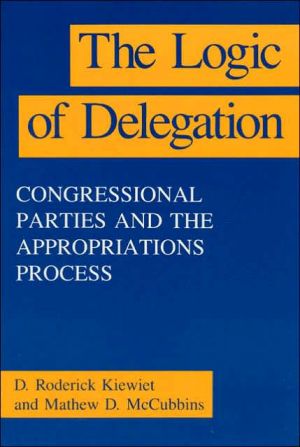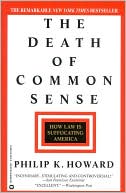The Logic of Delegation: Congressional Parties and the Appropriations Process
The purpose of this book it to reexamine the unflattering image of congressional parties that pervades the literature. Doing so necessarily requires us to reassess the discouraging view of delegation upon which it is based.
Search in google:
Why do majority congressional parties seem unable to act as an effective policy-making force? They routinely delegate their power to others—internally to standing committees and subcommittees within each chamber, externally to the president and to the bureaucracy. Conventional wisdom in political science insists that such delegation leads inevitably to abdication—usually by degrees, sometimes precipitously, but always completely. In The Logic of Delegation, however, D. Roderick Kiewiet and Mathew D. McCubbins persuasively argue that political scientists have paid far too much attention to what congressional parties can't do. The authors draw on economic and management theory to demonstrate that the effectiveness of delegation is determined not by how much authority is delegated but rather by how well it is delegated. In the context of the appropriations process, the authors show how congressional parties employ committees, subcommittees, and executive agencies to accomplish policy goals. This innovative study will force a complete rethinking of classic issues in American politics: the "autonomy" of congressional committees; the reality of runaway federal bureaucracy; and the supposed dominance of the presidency in legislative-executive relations.
List of Figures List of Tables Acknowledgments 1. Introduction 2. Delegation and Agency Problems 3. Congressional Party Leadership 4. Congressional Parties and the House Appropriations Committee 5. Congressional Parties and Committee Assignments 6. Looking Backward: Conference Committees and Amendments to Appropriations Bills 7. Congress and the Budget Bureau 8. Congressional Parties and Appropriations Decisions 9. Turning Appropriations into Expenditures 10. Conclusion Notes References Index








